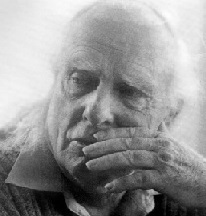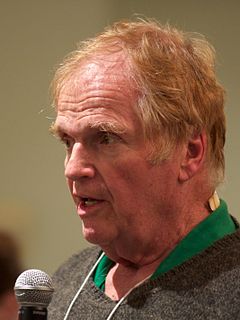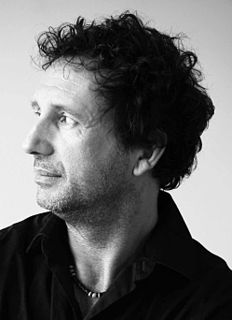The following outline is provided as an overview of and topical guide to linguistics:

Pragmatism is a philosophical tradition that considers words and thought as tools and instruments for prediction, problem solving, and action, and rejects the idea that the function of thought is to describe, represent, or mirror reality. Pragmatists contend that most philosophical topics—such as the nature of knowledge, language, concepts, meaning, belief, and science—are all best viewed in terms of their practical uses and successes.

Herbert Paul Grice, usually publishing under the name H. P. Grice, H. Paul Grice, or Paul Grice, was a British philosopher of language, whose work on meaning has influenced the philosophical study of semantics. He is known for his theory of implicature.
Robin Tolmach Lakoff is a professor of linguistics at the University of California, Berkeley. Her 1975 book Language and Woman's Place is often credited for making language and gender a huge debate in linguistics and other disciplines.

The linguistic turn was a major development in Western philosophy during the early 20th century, the most important characteristic of which is the focusing of philosophy and the other humanities primarily on the relations between language, language users, and the world.
In the branch of linguistics known as pragmatics, a presupposition is an implicit assumption about the world or background belief relating to a utterance whose truth is taken for granted in discourse. Examples of presuppositions include:

John Robert "Haj" Ross is a poet and linguist. He played a part in the development of generative semantics along with George Lakoff, James D. McCawley, and Paul Postal. He was a professor of linguistics at MIT from 1966–1985 and has worked in Brazil, Singapore and British Columbia. He is currently at the University of North Texas.

Stephen Roy Albert Neale is a British philosopher and specialist in the philosophy of language who has written extensively about meaning, information, interpretation, and communication, and more generally about issues at the intersection of philosophy and linguistics. Neale is currently Distinguished Professor of Philosophy and Linguistics and holder of the John H. Kornblith Family Chair in the Philosophy of Science and Values at the Graduate Center, City University of New York (CUNY).
Andrea Bonomi is an Italian philosopher and logician, who studied with Enzo Paci.

In analytic philosophy, philosophy of language investigates the nature of language, the relations between language, language users, and the world. Investigations may include inquiry into the nature of meaning, intentionality, reference, the constitution of sentences, concepts, learning, and thought.
1974 in philosophy
1977 in philosophy
Donkey sentences are sentences that contain a pronoun with clear meaning but whose syntactical role in the sentence poses challenges to grammarians. Such sentences defy straightforward attempts to generate their formal language equivalents. The difficulty is with understanding how English speakers parse such sentences.
This is an index of articles in philosophy of language
Lauri Juhani Karttunen is an Adjunct Professor in Linguistics at Stanford and an ACL Fellow.

Meaning and Necessity: A Study in Semantics and Modal Logic is a book about semantics and modal logic by the philosopher Rudolf Carnap. The book, in which Carnap discusses the nature of linguistic expressions, was a continuation of his previous work in semantics in Introduction to Semantics (1942) and Formalization of Logic (1943). Considered an important discussion of semantics, it was influential and provided a basis for further developments in modal logic.
Barbara Kenyon Abbott is an American linguist. She earned her PhD in linguistics in 1976 at the University of California at Berkeley under the supervision of George Lakoff. From 1976 to 2006, she was a professor in the department of linguistics and Germanic, Slavic, Asian, and African languages at Michigan State University, with a joint appointment in philosophy. She is now a Professor Emerita.
Georgia M. Green is an American linguist and academic. She is an emeritus professor at the University of Illinois at Urbana-Champaign. Her research has focused on pragmatics, speaker intention, word order and meaning. She has been an advisory editor for several linguistics journals or publishers and she serves on the usage committee for the American Heritage Dictionary.
Craige Roberts is an American linguist. Her work in the areas of pragmatics and formal semantics explores how meaning is conveyed through anaphora, definiteness, and specificity of referring expressions, the modeling of presupposition and implicature, and methods for capturing modality, mood, tense, and aspect of verbs in language.
In formal semantics, the scope of a semantic operator is the semantic object to which it applies. For instance, in the sentence "Paulina doesn't drink beer but she does drink wine," the proposition that Paulina drinks beer occurs within the scope of negation, but the proposition that Paulina drinks wine does not. Scope can be thought of as the semantic order of operations.